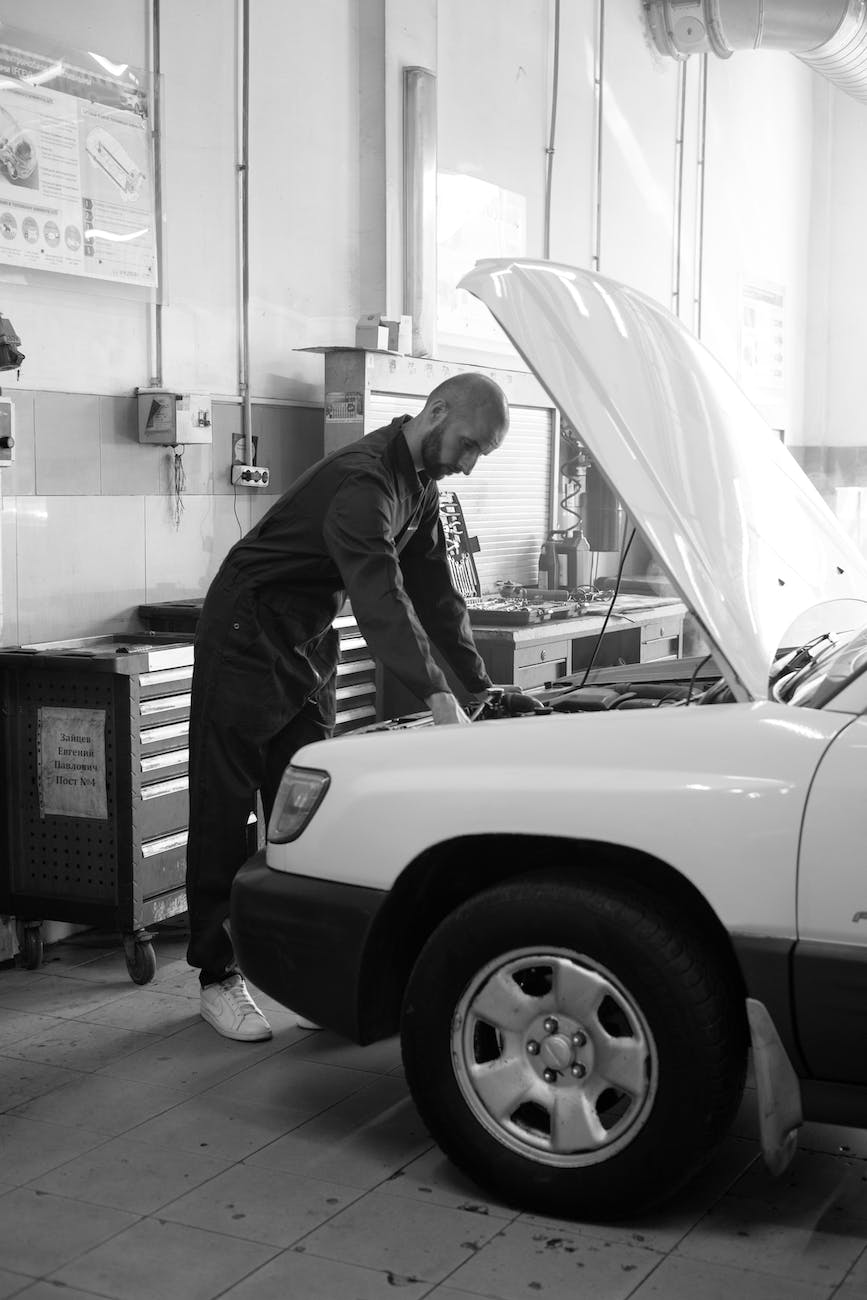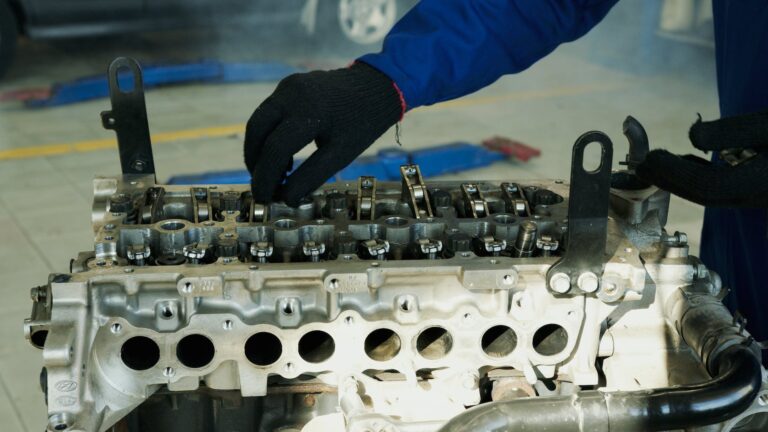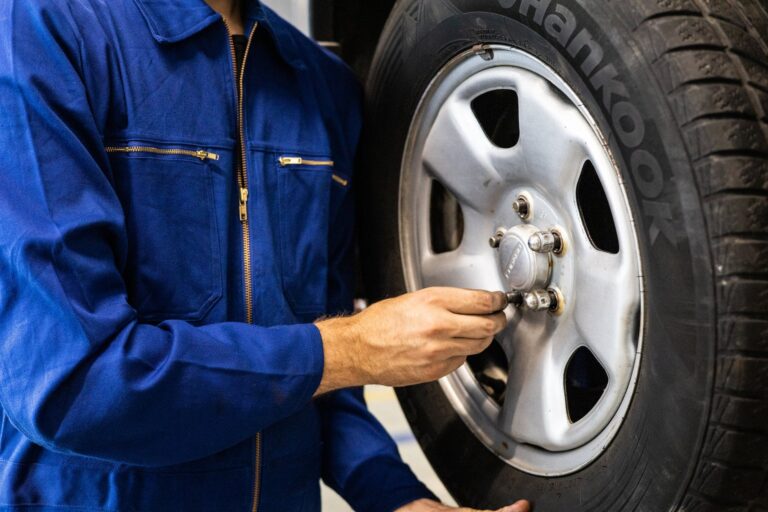Understanding Engine Diagnostics
When it comes to maintaining the health and performance of your car, engine diagnostics play a crucial role. Understanding what engine diagnostics are and their importance can help you stay on top of your car’s maintenance needs.
What is Engine Diagnostics?
Engine diagnostics refer to the process of identifying and troubleshooting issues within a car’s engine system. It involves the use of specialized tools and equipment to gather data and generate engine diagnostic codes, which provide insights into the condition and performance of the engine. These codes are used to pinpoint specific problems and assist in the repair process.
Modern cars are equipped with onboard diagnostics (OBD) systems that monitor various components and systems within the vehicle. When an issue is detected, the OBD system triggers the check engine light on the dashboard, indicating the need for an engine diagnostic check.
Importance of Engine Diagnostics
Regular engine diagnostics are essential for several reasons:
-
Early Detection of Issues: Engine diagnostics can uncover underlying problems before they escalate into major issues. By identifying and addressing these issues early on, you can prevent further damage and potentially save on costly repairs.
-
Preventing Costly Repairs: Identifying problems through engine diagnostics allows you to address them promptly, preventing them from developing into more serious and expensive repairs. Timely maintenance and repairs can help extend the lifespan of your car’s engine and improve its overall performance.
-
Ensuring Vehicle Safety: Engine problems can compromise the safety of your vehicle and its occupants. Engine diagnostics help ensure that your car is operating at its optimal level, reducing the risk of breakdowns and enhancing overall safety on the road.
To perform engine diagnostics, mechanics use specialized tools, such as car diagnostic scanners and engine diagnostic tools, to read the engine diagnostic codes and analyze the data. These tools enable them to quickly and accurately diagnose issues, allowing for efficient repairs.
It’s important to note that engine diagnostics should be carried out by qualified professionals who have the necessary expertise and training. ASE-certified mechanics, for example, have demonstrated a high level of competency in their field and can provide reliable engine diagnostic services (Indeed). Choosing a reputable repair shop with experienced technicians ensures that your car is in capable hands.
By prioritizing regular engine diagnostics, you can catch potential problems early, keep your car running smoothly, and maintain its longevity. Don’t ignore the check engine light or any signs of engine trouble. Instead, schedule an engine diagnostic test to address the issue promptly and ensure the continued performance and reliability of your vehicle.
Signs You Need an Engine Diagnostic
It’s important to pay attention to your car’s performance and be aware of any signs that indicate the need for an engine diagnostic. Here are some common indicators that you should consider getting your engine diagnosed:
Check Engine Light Illuminated
One of the most common signs that you should get an engine diagnostic is when the “check engine” light illuminates on your dashboard. This light serves as a warning that there is a problem with your car’s engine that needs to be diagnosed. It could indicate issues with the engine’s sensors, emissions system, or other components. It’s important not to ignore this warning light, as it could lead to further damage if left unaddressed. For more information, check out our article on engine diagnostics.
Difficulty Starting the Engine
Experiencing difficulty starting the engine is another sign that you should consider getting an engine diagnostic. If you encounter problems such as the engine cranking but failing to start, it could indicate issues with the ignition system or fuel delivery system. An engine diagnostic can help pinpoint the underlying cause and ensure that your car starts reliably. To learn more about engine diagnostics, visit our article on car diagnostic scanner.
Poor Fuel Efficiency
If you notice a significant decrease in your car’s fuel efficiency without any changes in your driving habits, it may be time for an engine diagnostic. Poor fuel efficiency can be an indication of engine problems, such as issues with the fuel injectors, oxygen sensors, or air intake system. An engine diagnostic can identify the root cause and help restore your car’s fuel efficiency. For more information, check out our article on engine diagnostic test.
Engine Misfires
Engine misfires, where the engine stumbles or hesitates during acceleration, should not be ignored. If you experience frequent engine misfires, it is important to get an engine diagnostic. Misfires can be caused by various factors, including faulty spark plugs, fuel injectors, or ignition coils. An engine diagnostic can help identify the specific component that requires attention. To learn more about engine diagnostics, visit our article on engine diagnostic tool.
Unusual Noises from the Engine
Unusual noises coming from the engine, such as knocking or ticking sounds, should not be ignored. These noises can be indicative of engine damage or a malfunctioning component. If you notice any unusual sounds, it is recommended to get an engine diagnostic to identify the source of the noise and prevent further damage. For more information, check out our article on engine diagnostic codes.
If you experience any of these signs, it is advisable to seek an engine diagnostic to identify and address the underlying issues. Engine diagnostics can help detect problems early on, prevent costly repairs, and ensure the safety and performance of your vehicle. To find a reliable car engine diagnostic service near you, consider checking out reputable repair shops and utilizing online directories and search methods. For more information, visit our article on engine diagnostic service.
The Car Diagnostic Process
When it comes to addressing issues with your vehicle, a car diagnostic test is an essential step in identifying the underlying problems. This section will provide an overview of how car diagnostic tests work, the tools used for engine diagnostics, as well as the cost and duration of a typical car diagnostic test.
How Car Diagnostic Tests Work
A car diagnostic test is a procedure that helps determine the cause of a vehicle’s issue or what has triggered the check engine light to come on (Sun Devil Auto). During the test, an advanced computer-type tool is connected to the vehicle’s internal computer system, enabling it to read any codes stored and download information to help determine the area of the car that needs attention (Sun Devil Auto).
By utilizing an OBD II (On-Board Diagnostics) interface, a car diagnostic test can provide valuable information about various aspects of your engine’s performance. This includes ignition timing, the level of buildup in the combustion chamber, fuel injector performance, engine RPMs, and ignition coil firing (Sun Devil Auto).
Tools Used for Engine Diagnostics
Car diagnostic tests require the use of specialized tools to effectively communicate with the vehicle’s computer system and retrieve crucial data. These tools range from basic code readers to advanced scan tools used by automotive shops. While basic code readers are available for individual use, they provide limited information about the source of the problem. On the other hand, advanced scan tools used by professionals are more expensive and require training to operate and comprehend (Sun Devil Auto).
Cost of a Car Diagnostic Test
The cost of a car diagnostic test can vary depending on several factors, including the location, the complexity of the issue, and the type of repair shop. On average, the cost of a car diagnostic test can range from $50 to $200. It’s worth noting that some repair shops offer free or discounted diagnostic tests if you proceed with the repairs through them. To get an accurate estimate, it is recommended to contact local repair shops and inquire about their diagnostic test fees (SuperMoney).
Duration of a Car Diagnostic Test
The duration of a car diagnostic test can vary depending on the complexity of the issue and the efficiency of the technician performing the test. In general, a standard car diagnostic test can take anywhere from 30 minutes to an hour. However, if the issue is more complex or requires additional testing, the duration may be longer. It’s advisable to consult with the repair shop beforehand to get an estimate of the expected duration for the diagnostic test.
Understanding the car diagnostic process, the tools utilized, and the associated cost and duration can help you better prepare for any engine-related issues that may arise. By promptly addressing problems identified during a car diagnostic test, you can prevent further damage and ensure the longevity and reliability of your vehicle.
Benefits of Regular Engine Diagnostics
Regular engine diagnostics play a crucial role in maintaining the health and performance of your vehicle. By conducting these diagnostics at recommended intervals, you can enjoy several key benefits.
Early Detection of Issues
One of the primary benefits of regular engine diagnostics is the early detection of potential issues. Through the use of advanced car diagnostic scanners and tools, mechanics can identify and analyze various engine problems, even before they manifest as noticeable symptoms. This early detection allows for prompt repairs and prevents minor issues from escalating into major and costly repairs.
By addressing problems in their early stages, you can prevent further damage to your vehicle and improve its overall longevity. This proactive approach to maintenance ensures that your car remains in optimal condition, reducing the chances of unexpected breakdowns and the need for extensive repairs.
Preventing Costly Repairs
Regular engine diagnostics can also help prevent costly repairs. By identifying and resolving issues early on, you can prevent them from worsening and causing additional damage to your vehicle. This proactive approach can save you from expensive repairs that may result from neglected engine problems.
Additionally, diagnostics can uncover underlying issues that may not be immediately apparent. By identifying these hidden problems, mechanics can address them before they lead to major breakdowns or component failures. This preventive maintenance approach can save you significant amounts of money in the long run.
Ensuring Vehicle Safety
Engine diagnostics are essential for ensuring the safety of your vehicle and its occupants. By identifying and addressing engine problems, you can maintain the reliability and performance of critical safety systems, such as the braking and steering systems.
Furthermore, an engine diagnostic can help detect faults or malfunctions that could potentially result in accidents or severe fatalities. Regular diagnostics can help ensure that your vehicle is operating at its best, reducing the risk of unexpected failures or malfunctions on the road.
By prioritizing regular engine diagnostics, you can reap these benefits and keep your vehicle running smoothly and safely. Remember to consult with a reputable repair shop and schedule diagnostic tests at recommended intervals. By doing so, you can catch engine problems early, prevent costly repairs, and ensure the continued safety and performance of your vehicle.
Finding a Car Engine Diagnostic Near You
If you’re experiencing issues with your car’s engine and need a reliable diagnostic service, there are several ways to find a car engine diagnostic near you. By choosing a reputable repair shop and utilizing online directories and search methods, you can ensure that your vehicle receives the necessary attention.
Choosing a Reputable Repair Shop
One of the most important factors in finding a car engine diagnostic near you is selecting a reputable repair shop. Many auto repair shops, car dealerships, and even some auto parts stores offer car diagnostic services. However, it’s essential to choose a provider that is trusted and reliable to ensure accurate results and quality service (SuperMoney).
To find a reputable repair shop, consider the following steps:
-
Ask for recommendations: Seek recommendations from friends, family, or colleagues who have had positive experiences with car diagnostics in your area. Their firsthand experiences can provide valuable insights into the quality of service provided by local repair shops.
-
Read online reviews: Check online review platforms, such as Google or Yelp, to read reviews and ratings of different repair shops in your area. Pay attention to reviews that mention engine diagnostics specifically to gauge the expertise and reliability of the repair shop.
-
Check certifications and qualifications: Look for repair shops that employ certified mechanics or technicians. Certifications from organizations such as ASE (Automotive Service Excellence) can indicate the expertise and professionalism of the repair shop.
-
Inquire about diagnostic tools and equipment: Ask about the diagnostic tools and equipment used by the repair shop. Up-to-date tools and technology can enhance the accuracy and efficiency of the diagnostic process.
By following these steps, you can choose a reputable repair shop that offers reliable engine diagnostic services in your area.
Online Directories and Search Methods
Another way to find a car engine diagnostic near you is by utilizing online directories and search methods. These resources can help you locate repair shops that specialize in engine diagnostics and are conveniently located in your vicinity. Here are some effective methods to consider:
-
Online directories: Utilize online directories specific to automotive services. These directories allow you to search for repair shops based on location and services offered. Examples of such directories include MotorLot’s car diagnostic scanner or general online directories like Google Maps or Yellow Pages.
-
Search engines: Perform a search using relevant keywords such as “car engine diagnostic near me” or “engine diagnostic service in [your location].” Search engines will provide a list of repair shops and relevant information, including customer reviews and contact details.
-
Manufacturer websites: If your vehicle is still under warranty, check the manufacturer’s website. They often have a directory or search feature that allows you to find authorized service centers in your area.
By utilizing online directories and search methods, you can efficiently locate repair shops that offer engine diagnostic services near you.
Remember, whether you’re choosing a repair shop or utilizing online directories, it’s important to prioritize quality, expertise, and customer reviews. By selecting a reputable provider, you can ensure accurate diagnostics and proper care for your car’s engine.
Finding a Car Engine Diagnostic Near You
When your car is experiencing issues or the check engine light is illuminated, it’s essential to find a reliable car engine diagnostic service near you to identify and address the problem. A car diagnostic test is a valuable tool that helps determine the cause of a vehicle’s issue or what has triggered the check engine light to come on (Sun Devil Auto). Let’s explore how you can find the right car engine diagnostic service.
Choosing a Reputable Repair Shop
When searching for a car engine diagnostic service, it’s important to choose a reputable repair shop that specializes in diagnostic testing. Look for shops with experienced technicians who have the expertise to accurately diagnose and repair automotive issues.
To find a reputable repair shop, consider the following steps:
-
Ask for Recommendations: Seek recommendations from friends, family, or colleagues who have had positive experiences with car engine diagnostic services. Their firsthand experiences can provide valuable insights.
-
Read Online Reviews: Check online reviews and ratings for repair shops in your area. Websites like Google, Yelp, and Angie’s List offer reviews from previous customers that can help you gauge the quality of service provided by different shops.
-
Check Certifications: Look for repair shops that have certifications from reputable organizations, such as the National Institute for Automotive Service Excellence (ASE). These certifications indicate that the technicians have the necessary skills and knowledge to perform diagnostic tests and repairs.
-
Visit the Shop: If possible, visit the repair shop in person to get a sense of their professionalism and cleanliness. A well-maintained shop with organized facilities can be a good indication of the quality of service they provide.
Online Directories and Search Methods
Utilizing online directories and search methods can also help you find a car engine diagnostic service near you. Here are a few options:
-
Online Directories: Websites like MotorLot allow you to search for car maintenance services, including engine diagnostics, by location. Simply enter your location and the desired service to find a list of nearby repair shops.
-
Search Engines: Conduct a search using search engines like Google, Bing, or Yahoo. Use search terms such as “car engine diagnostic near me” or “car diagnostic service [your location]” to find relevant results.
Remember to consider factors such as proximity, reputation, and specialization when choosing a car engine diagnostic service near you. It’s also important to inquire about the specific diagnostic tools and equipment used by the repair shop, as advanced tools can provide more detailed information about your vehicle’s condition.
By finding a reputable car engine diagnostic service, you can ensure that your vehicle is accurately diagnosed and any necessary repairs are carried out promptly. Regular diagnostic tests can help you catch potential issues early, prevent costly repairs, and ensure the safety and performance of your vehicle (J.D. Power).







